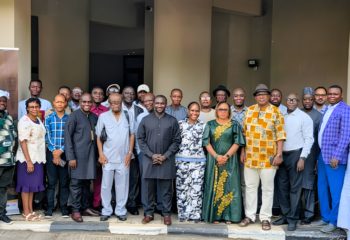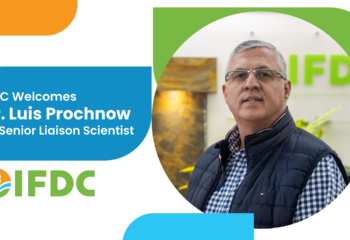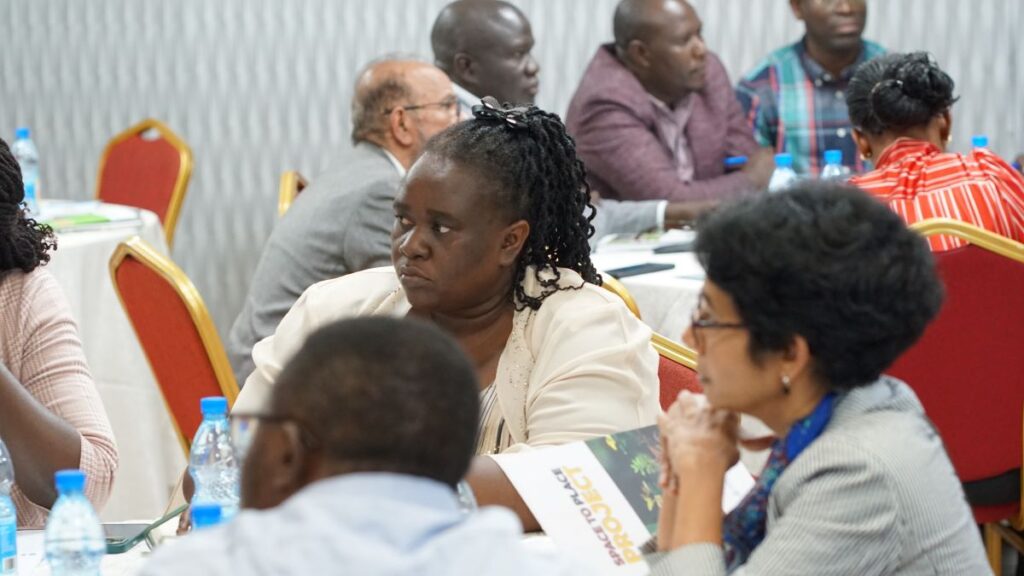
The recent stakeholder engagement workshop organized by the SOILS Space to Place (SOILS-S2P) initiative of the International Fertilizer Development Center (IFDC) and the Uganda National Agricultural Research Organization (NARO) emphasized the importance SOILS-S2P places on stakeholder involvement in projects activities. The workshop, held on February 6 in Kampala, Uganda, aimed to sensitize key players in the fertilizer industry about the initiative’s ongoing research in Uganda.
Specifically, the SOILS-S2P initiative is conducting fertilizer use efficiency trials to develop fertilizer blends suited for certain soil types in different agroecological zones and for certain crops across sub-Saharan Africa. In Uganda, SOILS-S2P is working with NARO to set up trials for maize, sunflower, Irish potato, and upland rice.
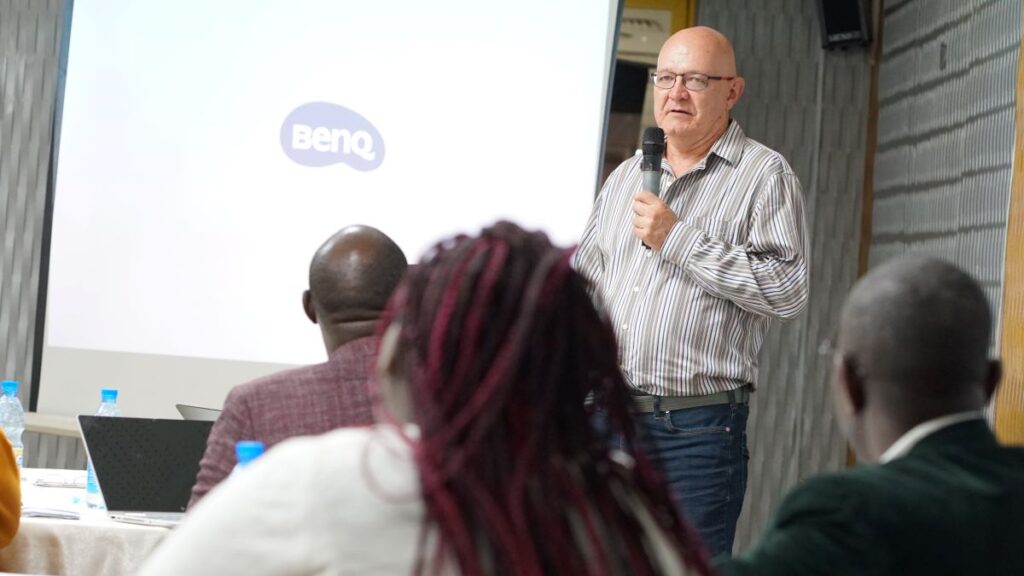
The initiative considers stakeholder engagement crucial for its success, not only for getting the science right but also for aligning research objectives to the priorities of beneficiaries on the ground.
IFDC Vice President of Research Dr. Upendra Singh, who led the SOILS-S2P delegation, said the initiative has established a strategic partnership to cover research, fertilizer blend development, and scaling of new technology to smallholder farmers.
“Combined with crop trials and modeling, we are finetuning our recommendations based on the information we are getting from farmers and validating the decision support system to provide reliable data at all levels of our operations.”
Dr. Upendra Singh, IFDC Vice President of Research
Alongside Dr. Singh, the IFDC delegation included SOILS Consortium Director Dr. Latha Nagarajan; Natural Resource Management Program Leader for Eastern and Southern Africa (ESA) John Wendt; Senior Soil Scientist Dr. Yam Ghaire; Senior Scientist and Systems Agronomist Dr. Senam Ezui; Social Economist Dr. Brian Mulenga; SOILS-S2P Economist Benny Kabwela; and IFDC Uganda Country Director Samuel Ssempala.
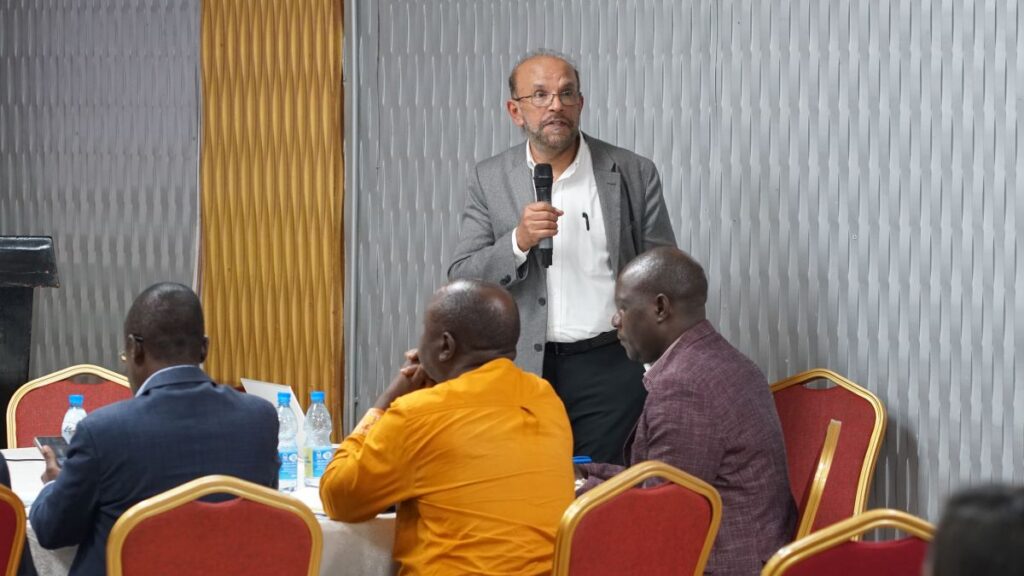
Representatives from several sectors, including fertilizer manufacturers, government research institutions, special interest groups, and development and humanitarian agencies, attended the workshop. This composition of attendance supported the initiative in collecting and incorporating feedback into the project’s design and activities, allowing for future partnerships.
Soil and Water Conservation Commissioner for the Ministry of Agriculture, Animal Industry and Fisheries (MAAIF) Dr. Freddie Kabango applauded the initiative, acknowledging that the country is experiencing declining soil fertility, low fertilizer use, and poor soil management, but that SOILS-S2P is aptly equipped to contribute to the much-needed interventions.
“At the ministry, we have created an enabling environment to support research that addresses the challenges affecting productivity in the country, and we will support initiatives such as these by IFDC,” said Dr. Kabango.
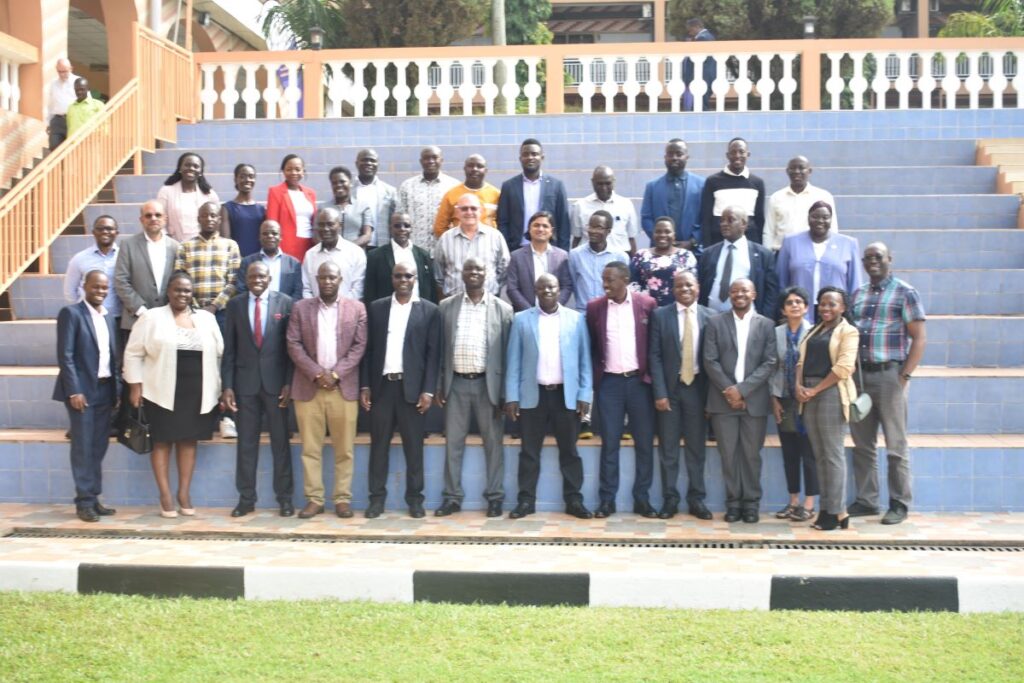
Echoing Dr. Kabango’s sentiments, National Agricultural Research Laboratory (NARL) Senior Soil Scientist Dr. Kayuki Kaizzi underscored the importance of aligning project activities with the needs of Uganda’s agricultural sector, which has been grappling with high fertilizer prices and reduced fertilizer use.
Representatives from Uganda’s private sector expressed optimism about the SOILS-S2P objectives and its intentions to work with them in the future to ensure that the initiative’s activities are grounded in the realities of the farmers it supports, thereby increasing the likelihood of successful outcomes. The event highlighted the importance of stakeholder engagement in the project’s anchor countries, demonstrating the power of collaboration in addressing the challenges of soil fertility and fertilizer use efficiency in sub-Saharan Africa.
The SOILS-S2P initiative is funded by the USAID Bureau for Resilience, Environment, and Food Security (REFS) to develop and deploy pan-African space-to-place decision support tools that sustainably improve soil fertility, with a medium- and long-term focus on enhancing nutrient uptake and use efficiency through hyper-localized soil fertility and soil health recommendations.


